Customer Services
Copyright © 2025 Desertcart Holdings Limited
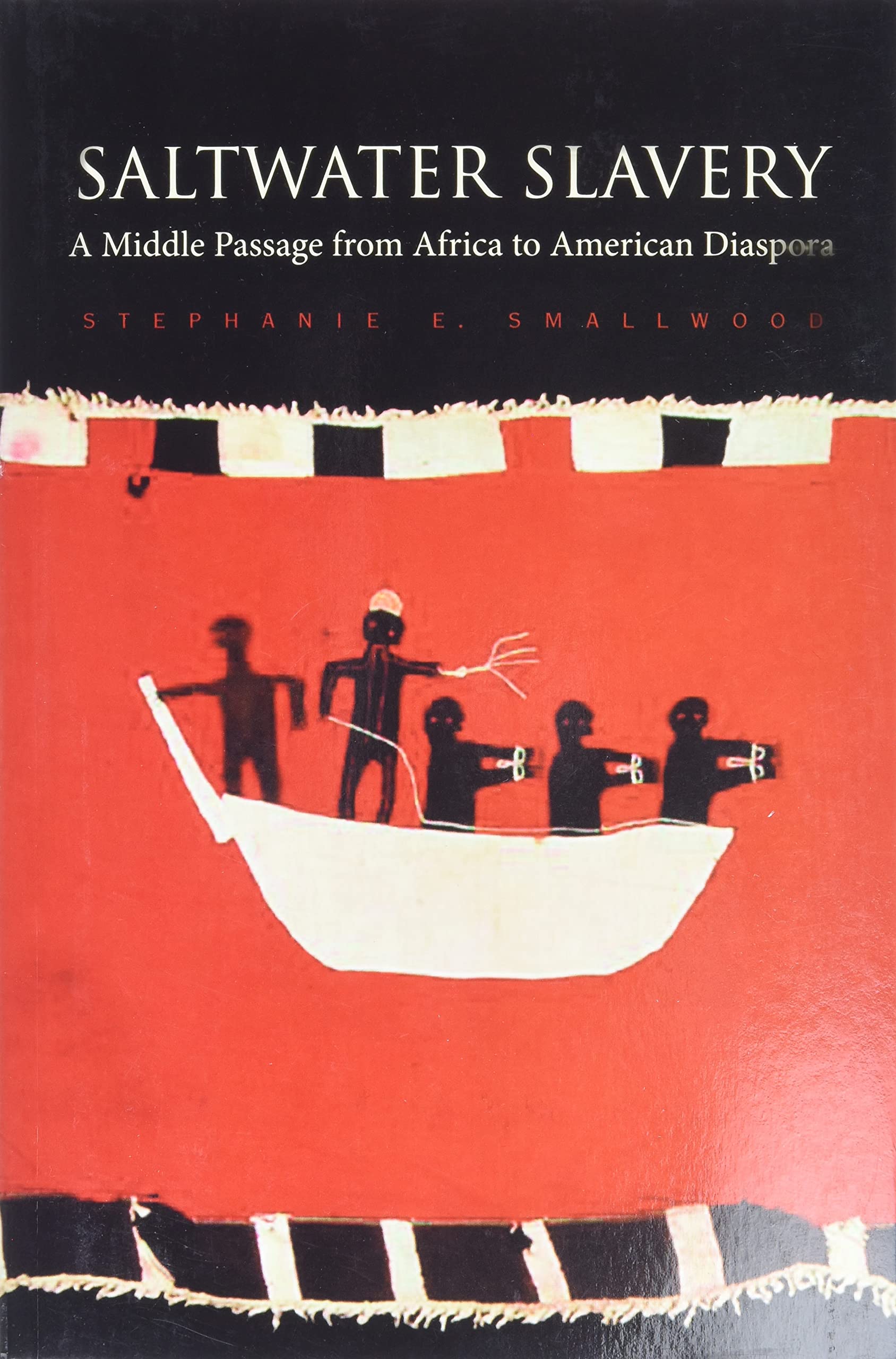

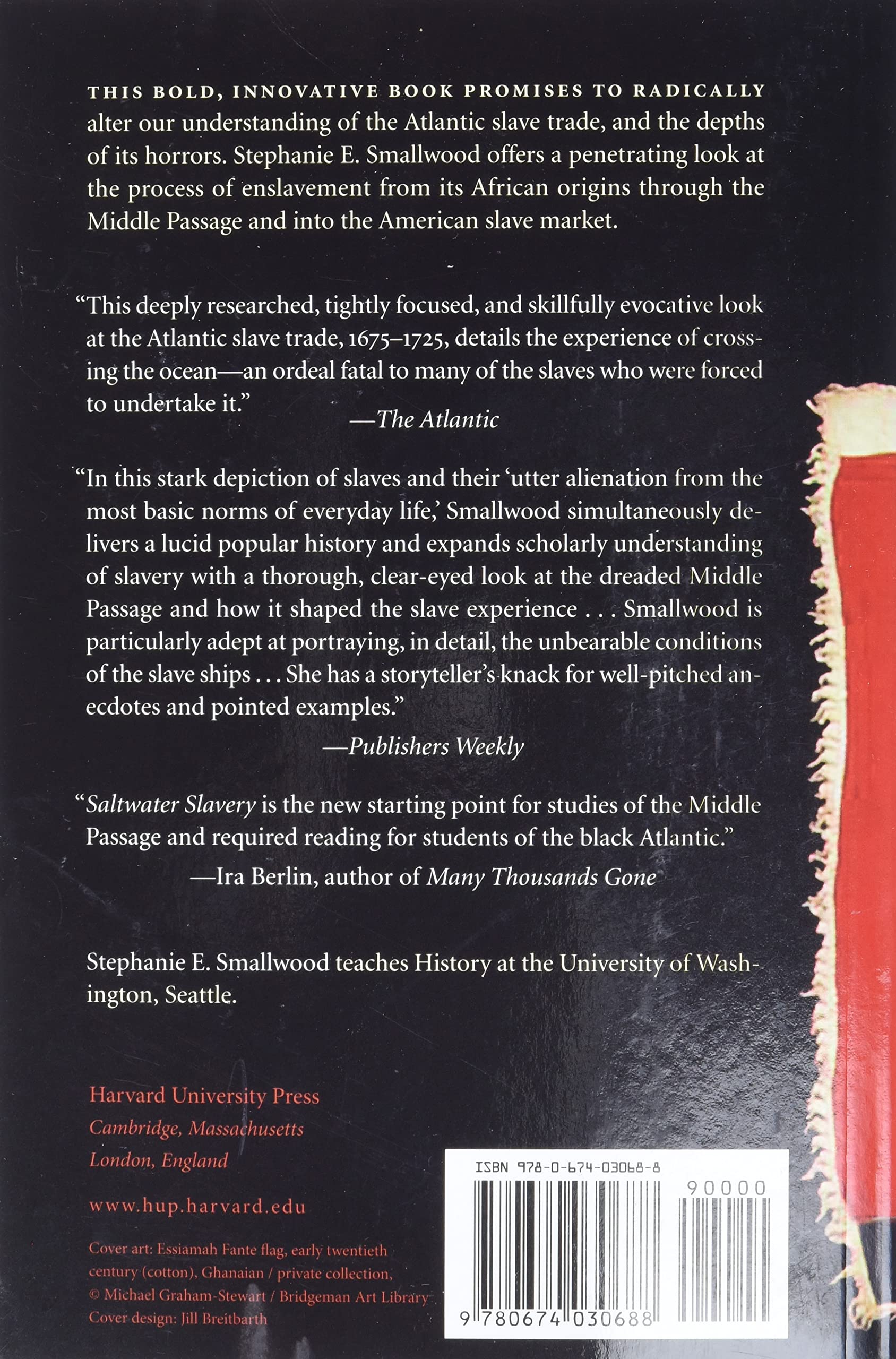
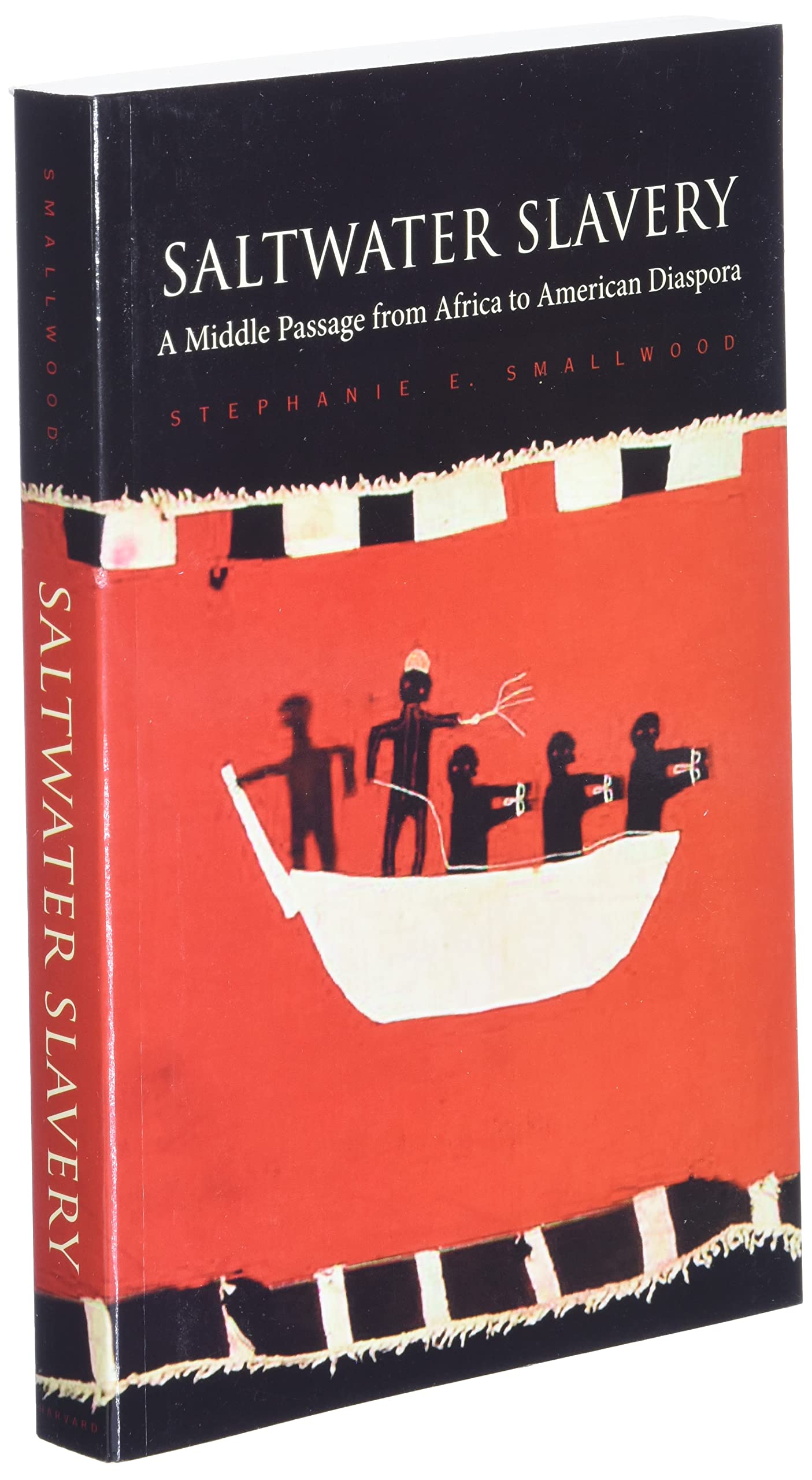
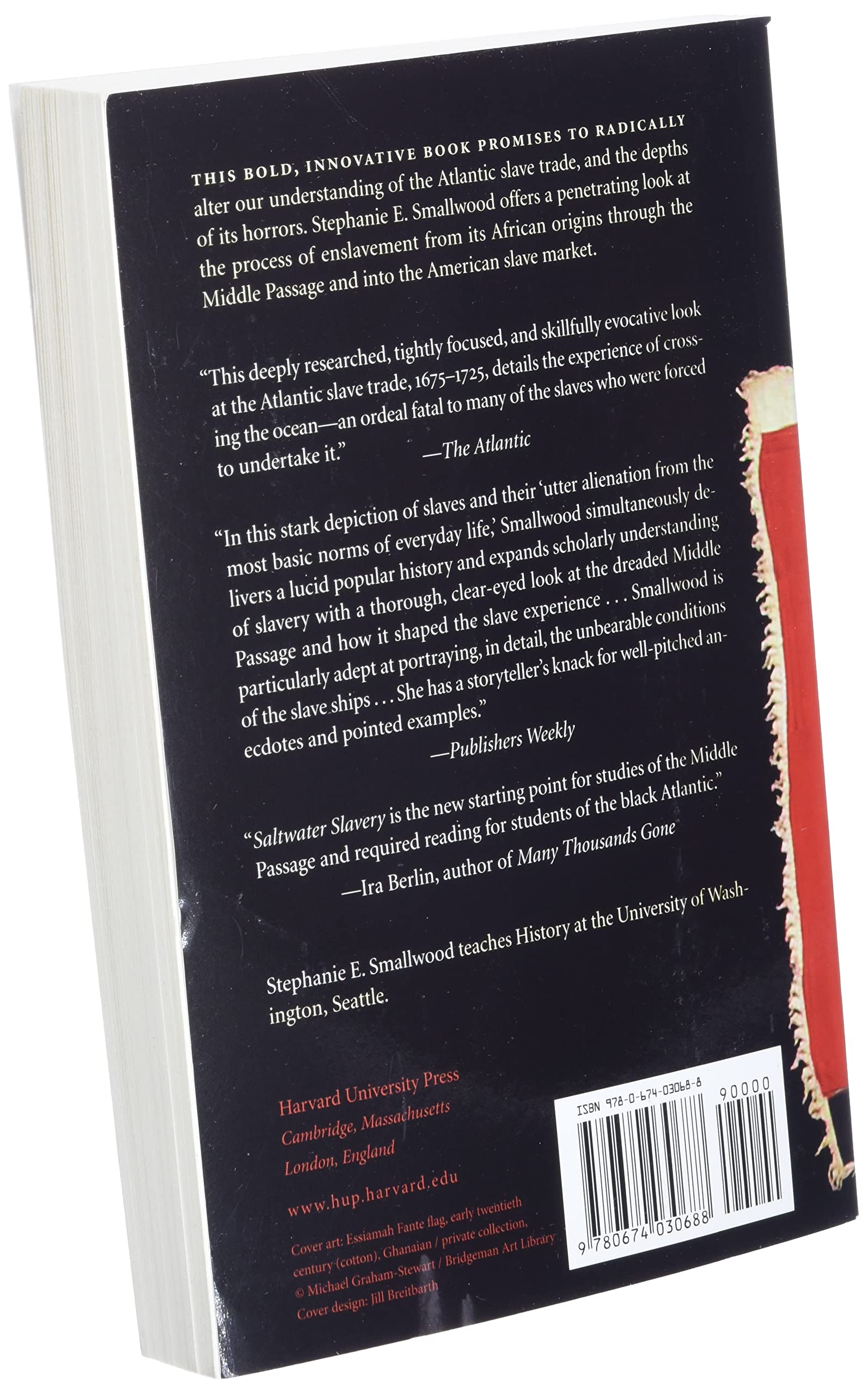
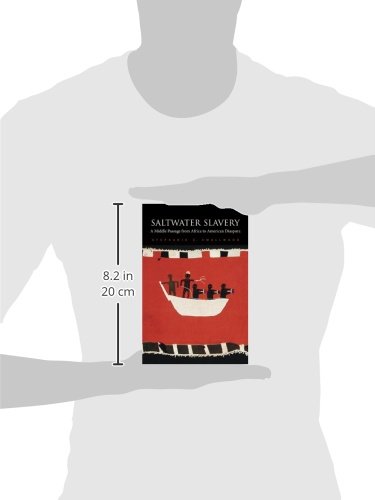
Full description not available
R**D
A Great Examination of Atlantic Slavery
In Saltwater Slavery: A Middle Passage from Africa to American Diaspora, Stephanie E. Smallwood examines the interaction between Europeans and Africans in the Gold Coast slave trade during the seventeenth through eighteenth centuries. Smallwood herself describes the subject, writing, “Saltwater Slavery brings the people aboard slave ships to life as subjects in American social history.”Smallwood seeks to better understand the perspectives of slaves in the Atlantic World of the Middle Passage by reading between the lines of European documents to tease out the slaves’ narratives. Smallwood writes, “Considering the ‘saltwater’ dimension of slaves’ lives allows us to piece together a picture of a place, a time, and an experience that does not otherwise figure into the archival record.”Smallwood argues that the coasts represented a key boundary, for example, between slavery as Africans understood it in the interior of Africa and how Europeans commodified it at the littoral. Similarly between the world of the slave ship and the needs of plantation owners in the Americas. Smallwood writes, “On the coast, captives were marked as commodities both physically and figuratively…As a result, captives and those who claimed to own them understood that saltwater slavery menaced them with ‘social death’ of unprecedented proportions.” Once aboard the ships, “slaves became, for the purpose of transatlantic shipment, mere physical units that could be arranged and molded at will.” The ships represented the boundary where power dynamics turned people into objects. Having crossed the Atlantic, slavers found that “the commodities they sold to American buyers were not the same commodities purchased on the African coast” due to the ravages of disease and violence both physical and psychological.Smallwood’s discussion of commodifying slaves draws a great deal from Michel Foucault. Broadly speaking, Smallwood’s entire argument follows a Foucauldian discourse of power, especially when she describes relations of slaves to one another based on ethic similarities or differences. Smallwood also relies heavily on African studies to supplement her analysis of the primary sources.For her method, Smallwood relies on official documents such as ledgers and more informal documents, comprising “internal correspondence between and among officials in London and agents stationed in Africa and the Americas.” She also includes various journals and other marginalia to create a fuller picture, observing that “it is in the dissonances between these two accounts that we can discern something of the captives’ own testimony.”
B**S
Clear and eye opening
Well written and insightful. The thoughts Ms. Smallwood proposes are revolutionary for me. As a young white girl, I was taught about the slave trade and the impact it had on human lives. I understood it was horrible but I was too young to conceive of all the social, political, international and personal aspects of its effects. As I matured, some things crossed my mind with understanding, but this book enabled all the loose thoughts to come together so that I could see a bigger, clearer picture of the effects of the unspeakable atrocities themselves and the wrongs that have continued long after the abolishment of slavery. I applaud Ms. Smallwood for her careful and deliberate work towards delivering a clear and eye opening illustration of a matter so easily misunderstood and overlooked in its monumental significance.
J**K
Excellent study on slave trade!
Always wondered about this part of the process!
N**A
this book was a good review, and a different perspective of the horrors ...
Purchased for a class on Early American History, this book was a good review, and a different perspective of the horrors and the depths of the Atlantic Slave trade. A must-read for anyone studying Early American History.
M**E
A well-intentioned failure
I wanted to like this book, but it was an incoherent mess. Smallwood wants to take the slave trade out of the realm of impersonal statistics and focus on its human impact, an an admirable goal. However she doesn't have enough in the way of personal narratives, particularly from the enslaved, to achieve that goal. Instead we go from impersonal statistics about slave exports from various African port cities to impersonal statistics about individual slave voyages.There are glimmers of something better here, moments when she does find an interesting story to tell, but she's never able to weave these occasional anecdotes into an effective narrative.The book is well-intentioned, but good intentions aren't reason enough to pick up a book like this. Whether you're a casual reader or serious researcher, there are better places to go to learn about the trans-Atlantic slave trade.
P**P
Important African American History
This book is an excellent resource for all educators. It will really make a History class shine with it's interesting details! Especially during Black History month and this book can be utilizing for the college professor that wants to add more indepth study into Afro American History.
A**A
It is a boring read.
I needed this book for a class. It is a boring read... it is fact, after fact, after statistic, after quote... but once you get through it, you realize that what it's saying is actually pretty interesting.
A**R
Anyone who reads this great account of a forced journey can easily and fully ...
Anyone who reads this great account of a forced journey can easily and fully understands why the history of forcing Africans to and enslavement in the U.S. cannot be buried nor lost in "alternative facts"!!!
V**N
Five Stars
Excellent - Really Pleased - Will use again!!
A**R
Three Stars
Eloquent and engaging read
Trustpilot
3 weeks ago
2 weeks ago